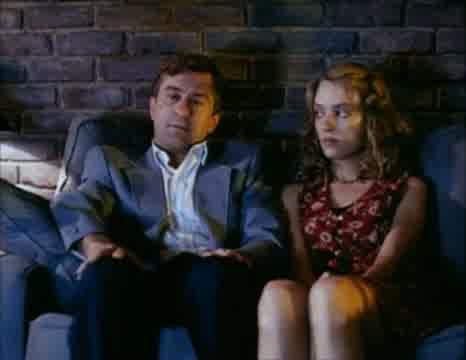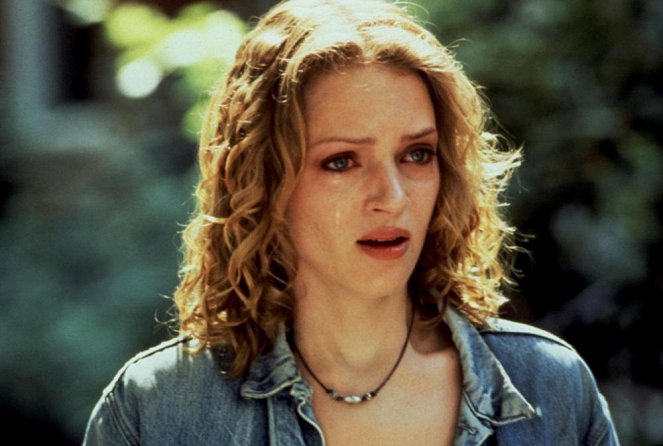Rendező:
John McNaughtonForgatókönyvíró:
Richard PriceOperatőr:
Robby MüllerZeneszerző:
Elmer BernsteinSzereplők:
Robert De Niro, Uma Thurman, Bill Murray, David Caruso, Mike Starr, J.J. Johnston, Kathy Baker, Tom Towles, Richard Belzer, Chuck Parello, Clem Caserta (több)Tartalmak(1)
A kétszeres Oscar®-díjas Robert De Niro, Uma Thurman és Bill Murray mellett brillírozik ebben a különleges és furcsa komédiában, melyet a The New York Times egyik kritikusa „rendkívül izgalmas egyvelegnek” nevezett. A chicagói rendőrség helyszínelő csoportjának technikusa, Wayne Dobie (De Niro) félénk, csendes ember. Tizenöt éve nem rántott fegyvert, kollégái úgy gúnyolják: „Veszett Kutya”. Amikor Dobie akaratán kívül megmenti Frank Milo (Murray), a helyi gengszter és uzsorás életét, a maffiózó hálája jeléül furcsa ajándékkal lepi meg: egy csodás, fiatal pincérlányt, Glóriát (Thurman) ajándékozza neki – egy heti használatra. Ez az egy hét azonban elég ahhoz, hogy Veszett Kutya és Glória egymásba habarodjanak. Ha meg akarja tartani szerelmét, Dobie kénytelen lesz elővenni a bátorságát és végre becenevének megfelelően viselkedni, ám ehhez Milonak is lesz néhány keresetlen szava. (Select Video)
(több)Videók (1)
Recenziók (1)
In the context of all of the names in front of and behind the camera (from producer Scorsese and classic film music composer Elmer Bernstein to the excellent cinematographer Robby Müller), Mad Dog and Glory peculiarly almost arouses anger due to how much potential is squandered and how it just doesn’t work as a whole. Director John McNaughton, a one-hit wonder who made his name with the disturbing Henry: Portrait of a Serial Killer, either absolutely fails to keep the project under control or tries to enhance the mediocre script with ambiguity, which falls flat because it’s completely nullified in the climax. The whole project is based on two desperately non-conceptual ideas. The first is a premise based on a would-be ingenious paraphrase of the expression “no guts, no glory”, where the last word is capitalised as Glory in reference to the title character. The film’s second joke is supposed to consist in the fact that De Niro and Murray are seemingly playing against their classic types. In the case of both actors, however, their parts are merely a very half-hearted warm-up for their fundamentally more well-developed roles in Jackie Brown and Groundhog Day, respectively. The film’s stumbling block consists in the fact that its characters only appear to be atypical thanks to surprisingly good dialogue in places, but they behave in a completely formulaic way. The narrative is deceptive in that it gives significant space to the characters and their frustrations, insecurities and life compromises, to the point that viewers may begin to think that the film will develop as a multi-layered drama that isn’t afraid to show atypical protagonists depicted outside of the traditional mould of masculinity. Despite all of this potential, however, the narrative that promisingly started out atypically then settles into the most traditional possible ruts. From a treatise on the fragile and usually concealed aspects of masculinity, the whole thing ultimately turns into a shameless “manic pixie dream girl” fable built, furthermore, on the moronic indoctrination formula by which a man can keep a woman if he punches someone in the mouth. ____ In many respects, Mad Dog and Glory is surprisingly the exact antithesis of Park Chan-wook's Oldboy, a brilliant deconstruction of self-admiring toxic masculinity. Both films deal with the strange interplay and complicatedly developing relationship between two men, where an essential role is played by a woman placed at the main protagonist’s side. They also contain images of often abrupt violence and fights filled with pain and exhaustion, and are set against the backdrop of the dark side of big cities with strange businesses and services for gangsters. Whereas Oldboy leads the audience from initial sympathy for the protagonist to a tremendously tragic climax and the realisation that he was actually the bad guy all along, Mad Dog and Glory merely presents any atypical and more complex aspects of masculinity as oddities and weaknesses that only limit the traditional virtuously heroic masculinity inherent in every man, which no woman can resist. ____ Mad Dog and Glory could be partially forgiven if, in accordance with the psychotherapy and anger management often mentioned in the film, we allowed for the possibility that it is the origin story to Analyze This.
()
(kevesebbet)
(több)


